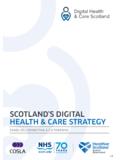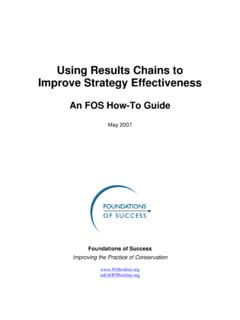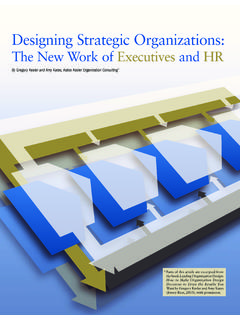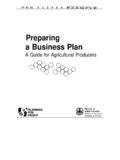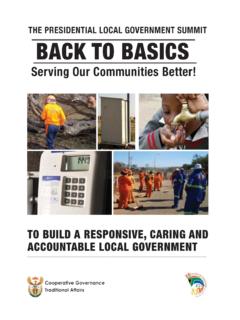Transcription of Think child, think parent, think family: a guide to ...
1 Think child , Think parent, Think family Think child , Think parent, Think family : a guide to parental mental health and child welfare i Think child , Think parent, Think family The Social Care Institute for Excellence (SCIE) supports the transformation of social care by identifying and transferring knowledge about good practice. We ensure that the experiences and expertise of people who use services, their carers and workers are reflected in all areas of our work. Established in 2001, we are an independent charity funded by the Department of Health, Department for Children, Schools and Families, and the devolved administrations in Wales and Northern Ireland. We support care services for adults, children and families and we work collaboratively with partners at national and regional levels. ii Think child , Think parent, Think family First published in Great Britain in July 2009 by the Social Care Institute for Excellence SCIE 2009 All rights reserved This report is available online Social Care Institute for Excellence Goldings House 2 Hay s Lane London SE1 2HB tel 020 7089 6840 fax 020 7089 6841 textphone 020 7089 6893 iii Think child , Think parent, Think family iv Contents Introduction 1 Priority recommendations 3 Background 5 Current context 8 Think child , Think parent.
2 Think family 15 The family Model as a conceptual framework 16 Characteristics of a successful service 19 Recommendations 21 Future developments 38 Resources 39 Practice examples 44 References 86 Acknowledgements 88 Consultation feedback 89 Appendices 89 Think child , Think parent, Think family Introduction This guide is about working with parents who have mental health problems and their children.
3 It provides guidance on policy and practice and makes recommendations for key areas of professional education, workforce development and research. It also provides links to useful resources and contact details of relevant organisations. Why have we written this guidance? parents with mental health problems and their children are a group with complex needs. Not all parents and children will need the support of health and social care services but those that do can find it difficult to get support that is acceptable, accessible and effective for the whole family . This guide identifies what needs to change and makes recommendations to improve service planning and delivery, and ultimately to improve outcomes for these families. Who is this guide for? The guide has been written for staff in mental health and children s services from all sectors. It is also relevant for those delivering pre- and post-qualifying education and training to health and social care staff and others responsible for workforce development.
4 People who use services and their carers will find useful information on what they can expect from services and where they can go for more information. The Social Care Institute for Excellence (SCIE) will be producing additional resources, including training materials, to help embed the recommendations into everyday practice. How was the guide developed? This guide is based on a synthesis of the evidence from a number of reviews of the published literature in the last 20 years (1985 2005) and a practice survey (a review of existing practice in adult and children s health and social care services) carried out in five sites in England (2006 2008). Full and summary reports of each review and the practice survey are available on the website. A project advisory group of various stakeholders with a range of experience in the delivery or receipt of health and social care services for parents with mental health problems and their children advised on the development and content of this guide .
5 An external consultation took place during March/April 2009 and details can be found on the website from August 2009. 1 Think child , Think parent, Think family 2 Your feedback SCIE welcomes comments on any aspect of this guide , which will inform future updates. We are also interested in collecting examples of good practice. Please send us your feedback. A note about terms used We use the term parent with mental health problems to refer to those parents with a primary diagnosis or need, identified as a mental health problem (mental illness or mental disorder). This does not exclude the possibility that these parents may experience other health problems or disabilities, alcohol or substance misuse, learning difficulties or domestic violence. The term includes parents who are known to children s services but do not have a formal mental health diagnosis, and parents who have not come to the attention of secondary mental health services.
6 The term children is used to refer to all children 18 years or younger, some of whom will be young carers. The term young carer is used to refer to a child or young person under the age of 18 carrying out significant caring tasks and assuming a level of responsibility for another person which would normally be undertaken by an adult. Young carers undertake a variety of tasks for parents with mental health problems, including advocacy, help with correspondence and bills, liaising with professionals, administering medicines, emotional support and domestic tasks. We note that different services use very different language to describe the processes they follow for assessing need and delivering support. However, essentially they all operate a basic care pathway that involves making and receiving referrals, screening clients, assessing need, putting together a care plan and reviewing existing care plans.
7 We have therefore used these terms to describe a generic care pathway throughout this guide , based on the assumption that whatever service is providing care and whoever receives it, they will typically go through a process which includes these components. Think child , Think parent, Think family Priority recommendations The following recommendations are for adult mental health and children s services in all sectors. Signposting and improving access to services Organisations should develop a multi-agency communications strategy to tackle the stigma and fears that parents and children have about approaching and receiving services. This should be a priority to enable families to get the support they need as soon as possible and should focus on promoting good mental health and wellbeing for all family members. Screening Ensure screening and referral systems and practice routinely and reliably identify and record information about which adults with mental health problems are parents , and which children have parents with mental health problems.
8 This means developing systems and tools in collaboration with parents and young people, to ensure the right questions are asked and the data is recorded for future use. Assessment All organisations need to adapt existing assessment and recording processes to take account of the whole family and train staff in their use. This means developing and implementing family threshold criteria for access to services to take into account the individual and combined needs of parents , carers and children. Strategies for the management of joint cases should be recorded where the situation is complex or there is a high risk of poor outcomes for children and parents . Planning care Care planning needs to be flexible enough to meet the needs of each individual family member as well as the family as a whole, and staff should aim to increase resilience and reduce stressors. Allocating an individual budget could provide this flexibility.
9 Increasing every family member s understanding of a parent s mental health problem can strengthen their ability to cope. Providing care Commissioners and providers of care should ensure that they can meet the full spectrum of needs, including the practical priorities of parents with mental health problems and their children. This means developing non-traditional and creative ways of delivering services as a way of targeting families and improving access. Reviewing care plans Reviews should consider changes in family circumstances over time, include both individual and family goals, and involve children and carers in the process. 3 Think child , Think parent, Think family 4 Strategic approach Multi-agency, senior-level commitment is required and we recommend that a Think family Strategy is developed to implement this guidance and that parents , children and carers are involved in all stages of development.
10 Workforce development Investment is needed in training and staff development for adult and children s front-line managers and practitioners to support the changes recommended in this guide about how to Think child , Think parent, Think family and work across service interfaces. Generating more evidence about what works The recommendations in this guide emphasise the need to generate further evidence about what works for families and this requires attention and resources to be dedicated to ensuring that the policy, service and practice recommendations in this guide are tried and tested and their impact evaluated and reviewed. Think child , Think parent, Think family Background SCIE s unique responsibilities and independent status means we can help address cross-boundary and transition issues and tackle complexity in ways that other agencies are not able to do. We have received regular enquiries and requests for information about working with parents with mental health problems and their children since our organisation formed in 2001.
